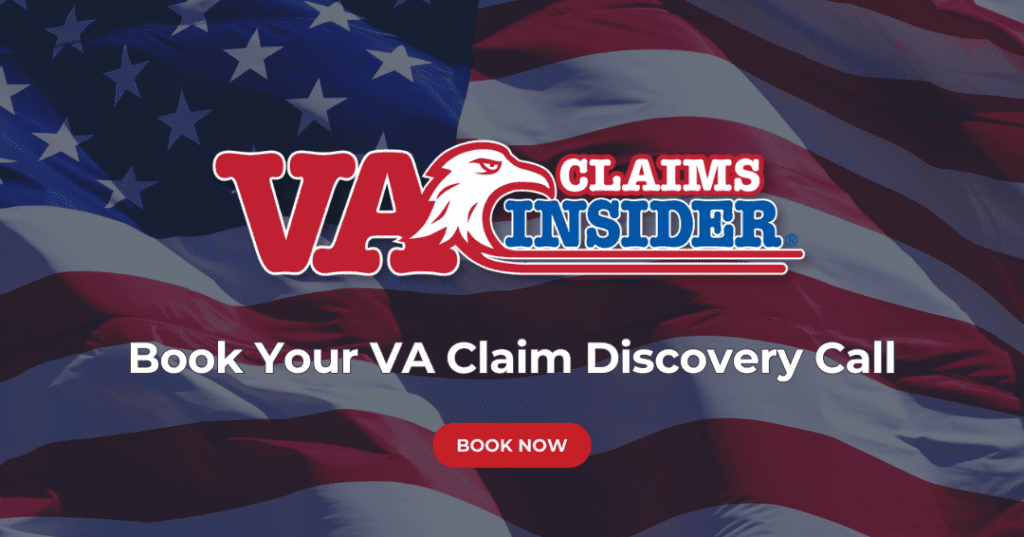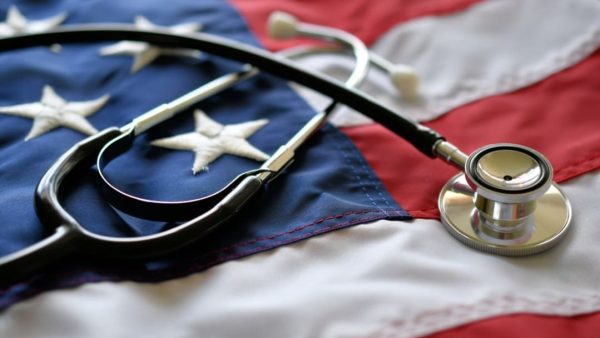Looking for Expert-Level VA Claim Answers?📱Call Us Now! 737-295-2226
As a veteran, you’ve earned the right to quality healthcare after service. But what exactly does that look like? Do veterans get free healthcare for life?
VA health care benefits offer comprehensive coverage, but eligibility, costs, and lifelong access depend on factors like your service history, disability status, and income.
In this post, we’ll break it down so you can understand your options and maximize your veteran benefits.
Whether you’re wondering who qualifies for free VA health care or whether you need health insurance in addition to VA benefits, we’ve got the facts straight from the source.
Summary of Key Points
- VA health care is not entirely free for all: VA health care is often low-cost or free for eligible veterans, but copays may apply based on priority groups and income.
- Eligibility matters: Most veterans with active-duty service qualify, with enhanced access for those with service-connected disabilities or combat exposure.
- There’s potential for lifelong coverage: Benefits can last a lifetime if you meet certain criteria, but enrollment requires a financial assessment.
Table of Contents
Who Qualifies for Free VA Health Care?

Understanding who qualifies for free VA health care starts with your military service. According to the U.S. Department of Veterans Affairs (VA), you’re generally eligible if you served on active duty in the Army, Navy, Air Force, Marines, Coast Guard, Space Force, or National Oceanic and Atmospheric Administration for 24 months consecutively. In addition to the time component, you must have an honorable or general discharge.
However, there are some exceptions. If you served before Sept. 7, 1980, or were discharged early due to hardship, disability that was caused (or made worse) by your active-duty service, or “early out,” you bypass the 24-month minimum active-duty requirement. Reservists and National Guard members qualify, too, as long as you were called to federal active duty (not just training) and served the entire period for which you were called.
Enhanced eligibility boosts your priority for free or low-cost care. This includes:
- Veterans with service-connected disabilities (0% to 100%).
- Combat veterans from post-9/11 conflicts (free care for service-related issues for up to 10 years post-discharge).
- Purple Heart recipients, former prisoners of war (POWs), or those exposed to toxins like Agent Orange or burn pits.
- Veterans who served in specific locations and during certain time periods during the Vietnam War era.
- Low-income veterans qualifying through a financial assessment.
The VA assigns you to one of eight priority groups upon enrollment, with priority groups 1 through 4 often getting free care. That means no copays for inpatient, outpatient, or preventive services.
For example, if you’re a 100% service-connected disabled veteran, you’re in Priority Group 1 — fully covered for life. Learn more about VA eligibility criteria.
What Veterans Are Not Eligible for VA Health Care?
While millions access VA benefits, not every veteran sails smoothly into VA health coverage. So, which veterans are not eligible for VA health care? The biggest hurdles are discharge status and service length.
A dishonorable, bad conduct, or other-than-honorable discharge can bar you outright. However, you can apply for a discharge upgrade or request a VA Character of Discharge review to potentially restore eligibility. Short service is another disqualification, unless it was for a service-connected disability.
Reservists and National Guardsmen who have never served a federally ordered active-duty assignment are also ineligible for VA health care.
And while Vietnam-era vets from certain locations (e.g., Thailand bases or Guam) get presumptive eligibility for toxic exposure, those without qualifying service may fall short.
Even if you meet all the eligibility requirements, income thresholds might bump you into a lower priority group with copays. The VA’s financial assessment determines this. It’s a straightforward but crucial process. If you’re unsure of your qualifying status, don’t guess or assume the worst. Contact the VA for a review.
Do Veterans Get Free Healthcare? Unpacking Costs and Copays
The short answer is yes — but it often varies. VA health care benefits aren’t a blanket “free for life” promise, but they’re designed to be affordable and comprehensive for those who qualify.
What do you get? The VA offers a full spectrum of coverage, including:
- Preventive care (immunizations, screenings)
- Hospital stays
- Surgeries
- Mental health services
- Dental (in select cases)
- Long-term care, including home health aides
- Urgent care is covered at VA facilities or through community networks, with rules for non-VA emergencies
The costs of coverage hinge on your priority group and income level. Priority Groups 1 through 6 typically face minimal or no copays. As of 2025 outpatient care copay rates, lower priority groups (7 to 8) might pay $15 to $50 per outpatient visit, depending on the service type, or 20% of inpatient costs, but waivers exist for financial hardship. No one is turned away due to an inability to pay.
Enrollment requires a means test for most, ensuring low-income vets get free access. These benefits can be lifelong, especially for disability-related care.
Pro Tip: Higher disability ratings from your VA claim can elevate your priority group and reduce costs, making it worthwhile to file if you haven’t already done so.
Do I Need Health Insurance if I Have VA Benefits?
No, but it’s a common misconception. VA enrollment satisfies the Affordable Care Act’s minimum essential coverage, so you won’t face penalties.
That said, VA health care works best when layered with other plans. Medicare? VA coordinates seamlessly, billing Medicare first for dual-eligible vets. TRICARE or employer insurance? They complement VA health care without reducing your VA benefits. In fact, having private insurance can cover gaps, like non-VA providers, for convenience. See how VA health care integrates with other coverage.
Conclusion
Do veterans receive free healthcare for life? For many, especially those with service-connected disabilities, combat service, or low income, the answer is yes, with lifelong access to top-tier care.
However, eligibility isn’t automatic. It’s crucial to understand the eligibility requirements and your priority group to avoid surprises.
Want Expert-Level Support for Your VA Disability Claim?

- VA Claims Insider is the #1 most trusted name in VA disability claims.
- Work directly with a VA claims coach who can educate you through the claims process.
- 25,000+ disabled veterans have served in our membership programs since 2016.
- 30% average rating increase for veterans who complete our #1-rated Elite program.
FAQs | Frequently Asked Questions
Do veterans get free healthcare for life?
Most eligible veterans can, if they’re in higher priority groups. Eligibility depends on service history, disabilities, and income. Free care is common for service-connected conditions.
Who qualifies for free VA health care?
Veterans with honorable or general discharges, service-connected disabilities, combat exposure, or low income. Priority Groups 1 through 4 often receive copay-free coverage.
What veterans are not eligible for VA health care?
Those with dishonorable discharges, insufficient active-duty time without exceptions, or solely training-based service. Discharge upgrades or VA Character of Discharge review can restore access.
Do veterans get free healthcare automatically?
No, you must enroll and complete a financial assessment. Enhanced eligibility (e.g., Purple Heart, POW status) speeds up the process.
Do I need health insurance if I have VA benefits?
No, VA health care meets the minimum coverage standards under the Affordable Care Act. It works with Medicare or private plans for added options.
Content Reviewed By

Quality Assurance Team
The Quality Assurance (QA) team at VA Claims Insider has extensive experience researching, fact-checking, and ensuring accuracy in all produced content. The QA team consists of individuals with specialized knowledge in the VA disability claims adjudication processes, laws and regulations, and they understand the needs of our target audience. Any changes or suggestions the QA team makes are thoroughly reviewed and incorporated into the content by our writers and creators.
About the Author

Katie McCarthy
Katie McCarthy is a writer and editor with experience in daily news and digital and print magazine publishing. She honed her editorial (and firearms) skills at Guns & Ammo before helping launch Black Rifle Coffee Company’s Coffee or Die Magazine as the managing editor. She holds degrees in English (BA) and public administration (MPA). Katie is a military spouse and word nerd who enjoys reading, hiking, camping, gardening, and spending time with her family.



